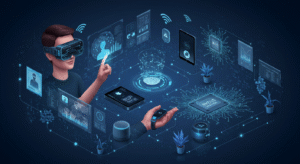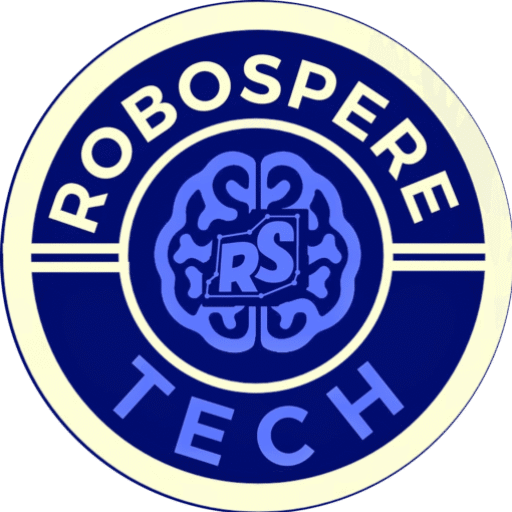What Is Artificial Intelligence?
AI refers to machines and software systems that simulate human intelligence - learning from data, making decisions, and adapting to new information. Key AI technologies include machine learning, natural language processing (NLP), computer vision, and generative AI, all of which enable devices and applications to perform complex tasks with increasing autonomy and precision.
AI’s Impact on Everyday Technology in 2025
1. Smart Devices and Virtual Reality
AI powers the next generation of smart devices, including smart glasses and virtual reality (VR) headsets. These technologies are becoming more immersive and intuitive, enabling seamless interaction through voice commands, gesture recognition, and real-time environment mapping. For example, AI-enhanced smart glasses can overlay contextual information onto the real world, transforming how we work, learn, and entertain ourselves.
2. Personalised Experiences and Tech News Integration
AI algorithms analyse vast amounts of user data to deliver hyper-personalised experiences. From content recommendations on streaming platforms like Netflix to personalised shopping suggestions on e-commerce sites like Amazon, AI tailors technology to individual preferences, making everyday interactions smoother and more engaging.
Additionally, AI-driven news aggregators curate tech news based on user interests, filtering out irrelevant or misleading content to keep users informed efficiently.
3. AI in Smart Homes and IoT
The integration of AI with Internet of Things (IoT) devices is revolutionizing smart homes. AI systems learn user habits to optimize energy consumption, control lighting, manage security, and automate routine tasks. Voice-activated AI assistants coordinate multiple devices, creating a seamless, intelligent home environment that anticipates needs and enhances convenience.
4. Healthcare and Wearables
AI-powered wearable devices monitor health metrics continuously, detecting anomalies and predicting potential health issues before symptoms appear. These devices, combined with AI apps, provide personalized health insights, encourage healthier lifestyles, and assist in proactive health management.
5. AI in Communication and Productivity Tools
Natural Language Processing (NLP) enables AI chatbots and virtual assistants to understand and respond to human language effectively. Chatgpt facilitates seamless communication, automates customer service, and enhances productivity by generating content, answering queries, and assisting with complex tasks.
6. Generative AI: Content Creation and Customer Engagement
Generative AI is transforming content creation by producing text, images, and designs rapidly and at scale. Businesses use these tools to create marketing materials, product descriptions, and interactive customer service bots that learn and improve with each interaction, delivering personalised and efficient service 24/7.


How AI Is Shaping the Future of Technology
-
Business Operations: AI-driven automation and predictive analytics optimise workflows, improve decision-making, and uncover new revenue opportunities. Robotic Process Automation (RPA) is evolving to handle complex tasks beyond repetitive processes.
-
Smart Cities and Agriculture: AI combined with IoT (AIoT) enhances urban infrastructure, traffic management, and energy efficiency. In agriculture, AI analyses sensor data to optimise irrigation and crop management, promoting sustainability and higher yields.
-
Entertainment and Education: AI personalises learning experiences and entertainment content, adapting dynamically to user preferences and performance to maximise engagement and effectiveness.
Conclusion
Artificial Intelligence is fundamentally transforming everyday technology by making devices smarter, interactions more personalised, and systems more efficient. From smart glasses and virtual reality to AI-powered healthcare and smart homes, AI’s integration into daily life is accelerating, promising a future where technology not only serves but anticipates human needs.
For Robospere Tech, staying at the forefront of these AI advancements means leveraging these technologies to build innovative solutions that enhance user experiences and drive business success in a rapidly evolving digital landscape.

